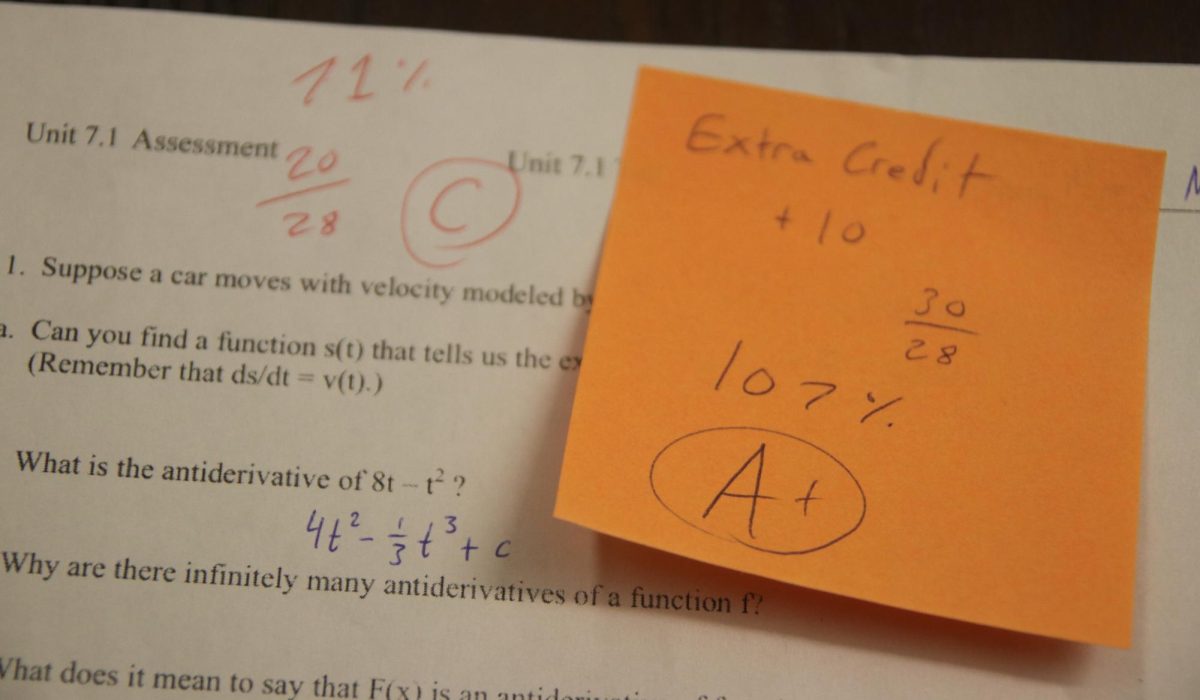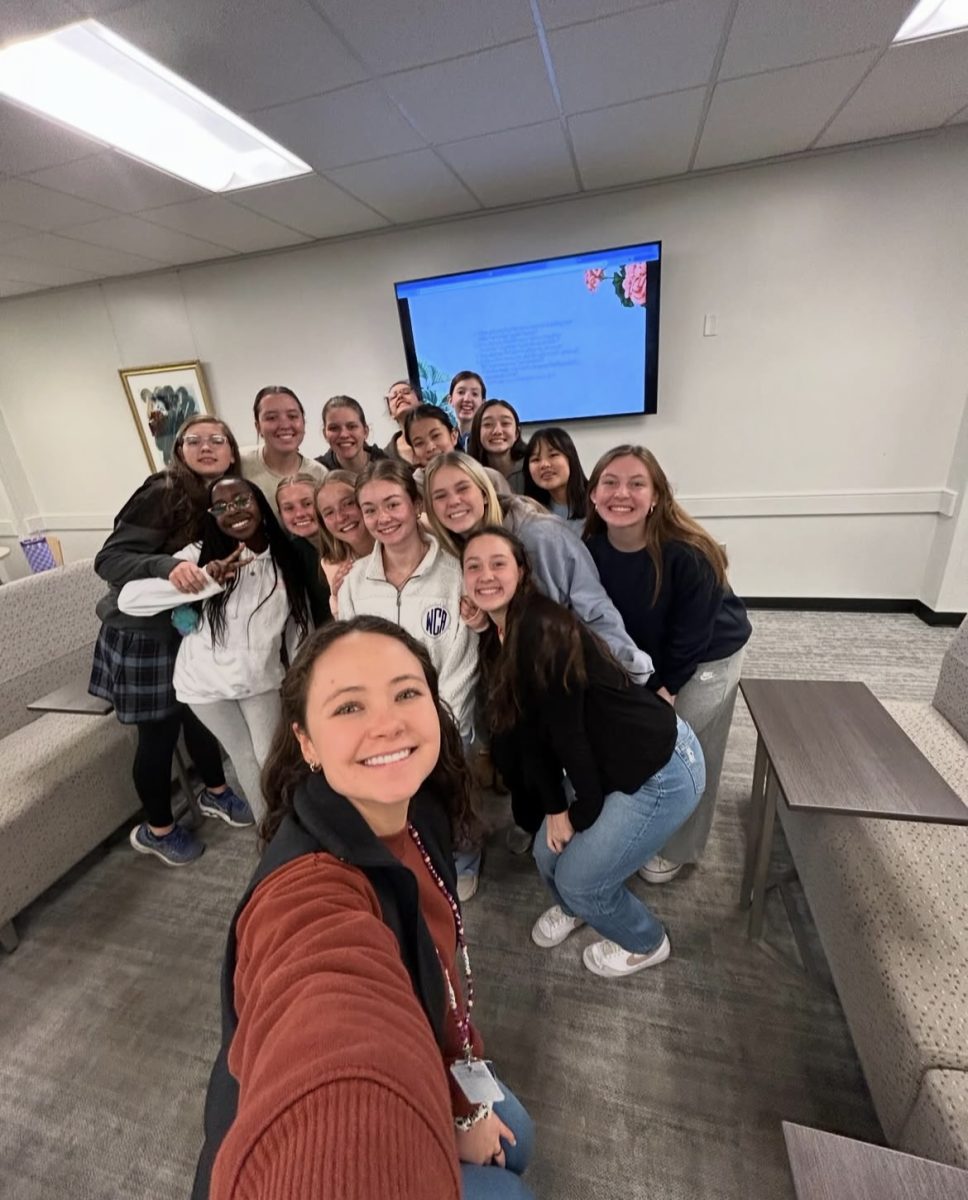Getting assigned an extra credit assignment is often seen as both a chore and a saving grace. Extra credit assignments are not required but can give a slight grade boost to those willing to complete them. A student might be required to write an essay or do a little extra studying, but either way, a little hard work is necessary to succeed. Sometimes extra credit can be confusing, and this article will describe what is required for extra credit, how much it is worth, and whether or not it exists at all.
Extra credit in the English Department is usually based around exploring literature outside the classroom. Examples include attending the many plays performed at Westminster, and then writing a personal reflection on the material. This is often best implemented for plays by William Shakespeare or other historical literary giants.
“I usually give a 5-point assignment for going to a play […] that they have to write about,” said Heidi Thies, the English Department Co-Chair. “I also, for every paper, allow them to use vocab words for extra credit points.”
It is not difficult to earn extra points in English class, but sometimes the demand for a grade boost can get out of hand.
“I think it’s fair for students to ask for [extra credit], but usually they ask for it at the end of a quarter […] and that’s not always when I offer it,” said Thies.
“I think the expectation that if [they] didn’t do the work, [they get extra credit], means it’s not fair to offer too much extra credit. But I also think that there’s some subjectivity to all of our grading, so there should be some kind of wiggle room,” said Thies. If a student messes up an assignment or makes a small mistake, they can rest assured knowing an opportunity to reclaim those points is possible.
“My grading is an assessment, a communication, of where you are in this subject and your understanding and abilities, but I care for you to go beyond a little and apply it in other little ways,” said Thies. Extra credit is meant to be an enrichment opportunity where students can apply what they’ve learned in a different environment. Utilizing vocab words in a paper or using composition skills to write a reflection are two examples.
Extra Credit in the Science Department often takes a more complex approach. Occasionally, an extra credit question will make its way to the end of a test, allowing well-studied students to gain a slight grade boost. However, once per quarter, there is an opportunity for a larger grade boost in the form of a written reflection, often reviewing a science seminar or STEM speaker hosted by Westminster.
“There’s two kinds of extra credit: […] there’s the extra credit problem on a test, but then there’s also the big extra credit that you would factor in at the end of the quarter, like a special project or presentation,” said Andrew Shaw, the Science Department Co-Chair.
“We do offer extra credit that would be tacked on at the end of the quarter,” said Shaw. Similar to the English Department, the Science Department allows for a chance to reclaim points after a slight mistake or rough week.
Shaw described how extra credit functioned in the past and gave valuable insight into how times have changed. “You used to be able to say, ‘well if you write a short paper on this special topic that you happen to be interested in, or if you write a special paper on this video or this lecture or something. Because of ChatBots, it’s way too easy for a student to not really do any work at all, and just have the AI write it for them,” said Shaw, voicing his concerns about AI influencing extra credit.
“We recently had this special lecture by Micheal Behe […] and the student had to attend and then the student wrote a personal response […] that’s not something a Chatbot could easily write […] ChatBot wouldn’t know what Micheal Behe said in the Zoom [call],” said Shaw. This is a great way to deter potential cheating, while also requiring students to attend an enriching event and pay attention.
Extra Credit in the History Department is on a much more case-by-case basis, with each teacher having their own policy and integration of extra credit. Often there is next to no extra credit offered, which may seem frightening to some students, but is backed up by some of the more powerful figures in the history department.
“I have on rare occasions [given extra credit] but as a rule, no,” said Jeff Gall, the History Department Chair.
He gave his thoughts on why extra credit was unhelpful. “I just think that the students have plenty of opportunities to do well in class, and I’d rather them focus on doing the best they can on what’s assigned and not worry about catching up later through extra credit,” said Gall.
He described his ideal version of extra credit. “I think extra credit can be valuable if it’s indeed an enriching activity […] Some faculty give extra credit to go to a Westminster performance, and I think if it’s relevant to the class, that’s probably a good thing. One thing I struggle with is that: […] some kids can’t go to the play, so they didn’t have an opportunity to earn that when other students did,” said Gall. He wishes extra credit was available to everyone willing to enrich their personal learning.
“I like extra credit if it’s truly about enrichment, and not catching up one’s grade,” said Gall.
Extra Credit in the Math Department is rare, as it is difficult to provide outside enrichment in a math class. Because extra credit is dependent on students learning more about a subject, a class where students must learn a specific topic in a specific order is less suited for extra credit.
He raised concerns about incentivising some aspects of a subject over others. “If you start adding points to an assignment, does that inflate that assignment too much?” said JD Perona, the Math Department Chair.
He believes that other departments can have extra credit, but for math class, it simply cannot work. “If other people can justify it and feel like it’s good for the student learning, I think that’s fine,” said Perona.
He found that in his classes: “Students don’t do what they were supposed to do originally, and then they hope to make it up by doing extra credit […] They don’t actually do the work they should,” said Perona.
Extra Credit is a controversial topic, with some teachers in favor, while others deem it unhelpful. Of course, there are other ways to pass a class. “I think, in my classes, the students who work hard are going to do very well, so I don’t see the need for extra credit,” said Gall.
School is supposed to be about preparing students for adult life, and all the consequences involved. However, extra credit is not often applicable in the real world. “In the real world you don’t get to bail yourself out at the very end by doing something special,” said Shaw. He described how if an employee spent a month arriving late and not performing their job properly, but then arrived early on one day in an attempt to get employee of the month, that employee would be fired.
While it is a helpful grade boost, extra credit is hard to implement, and occasionally harmful to the learning environment that school fosters. When used properly, it allows students to enrich their learning experience, but when used improperly, removes the consequence associated with failing to pay attention in class. Perhaps extra credit should remain as it is, low value assignments that pop up a few times a semester. Perhaps one day, extra credit will evolve enough to properly imitate a real-world concept.









